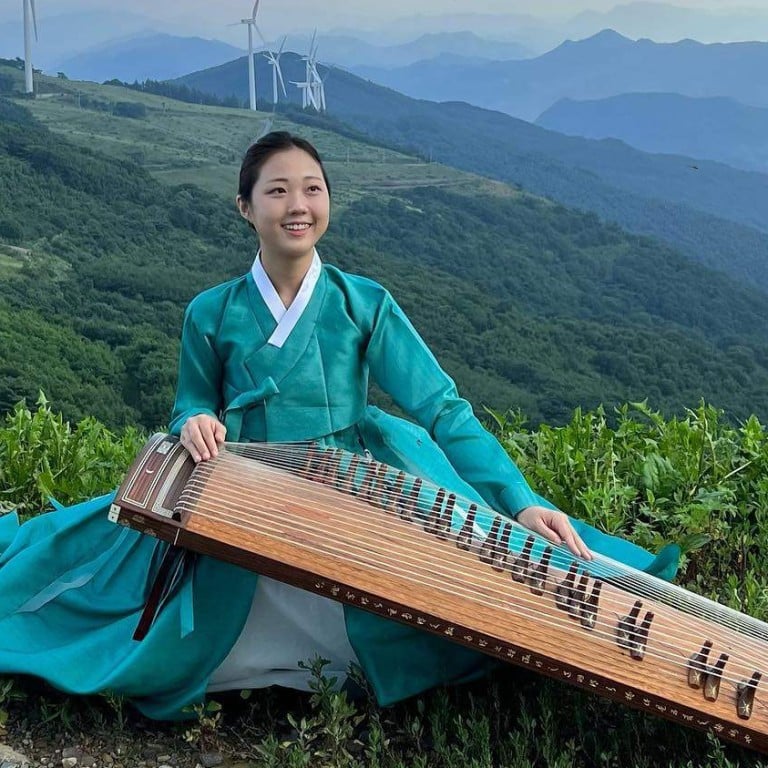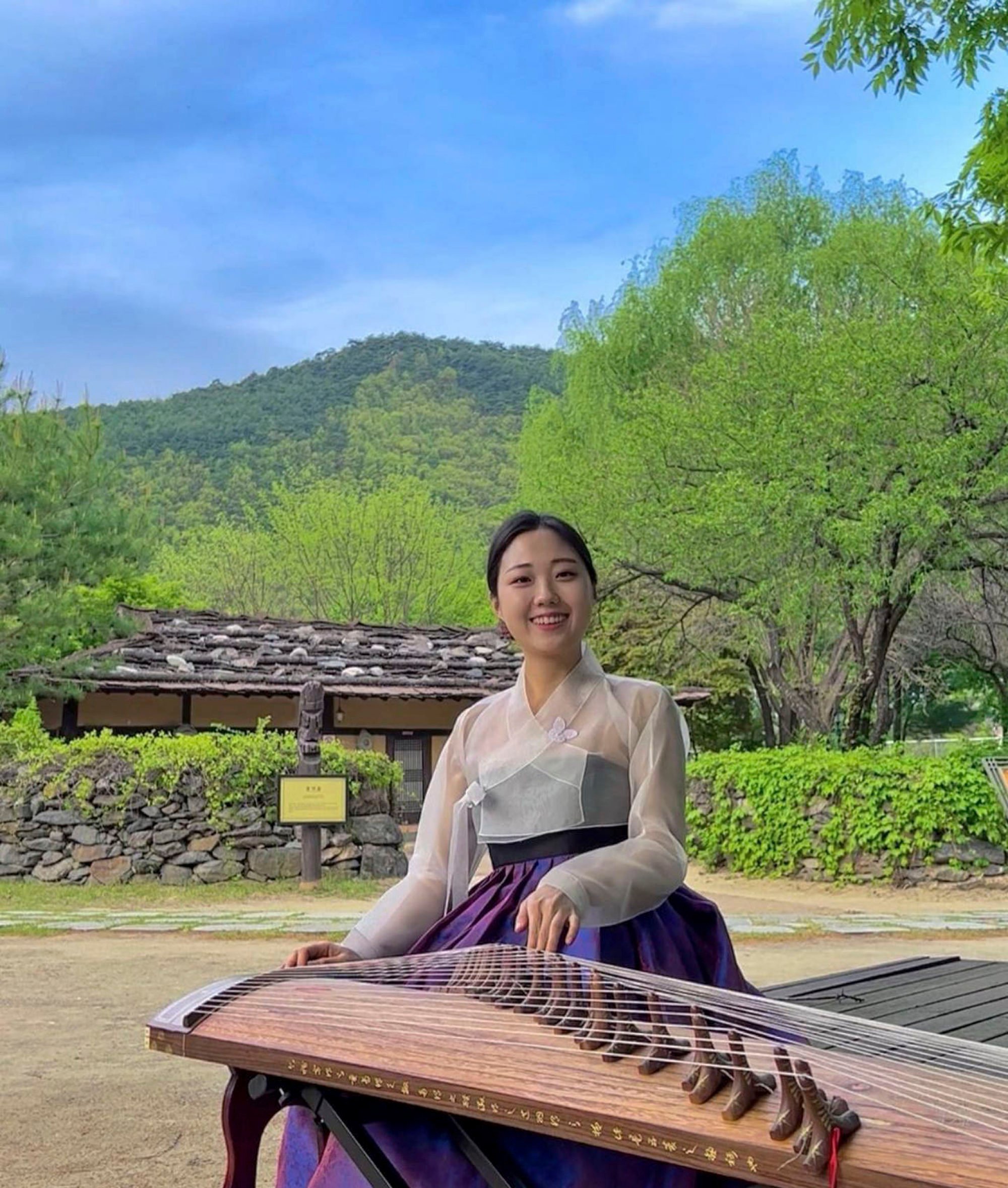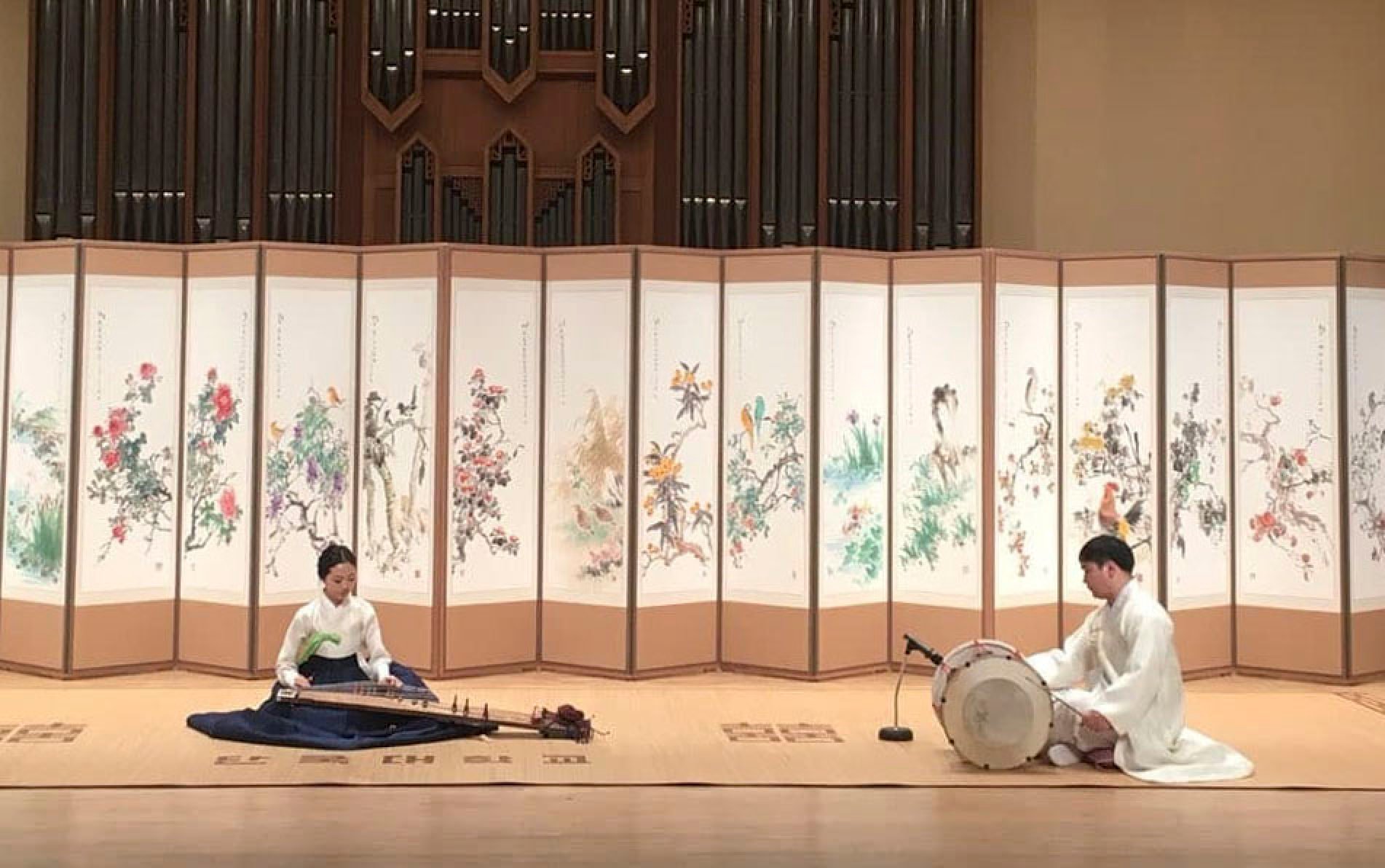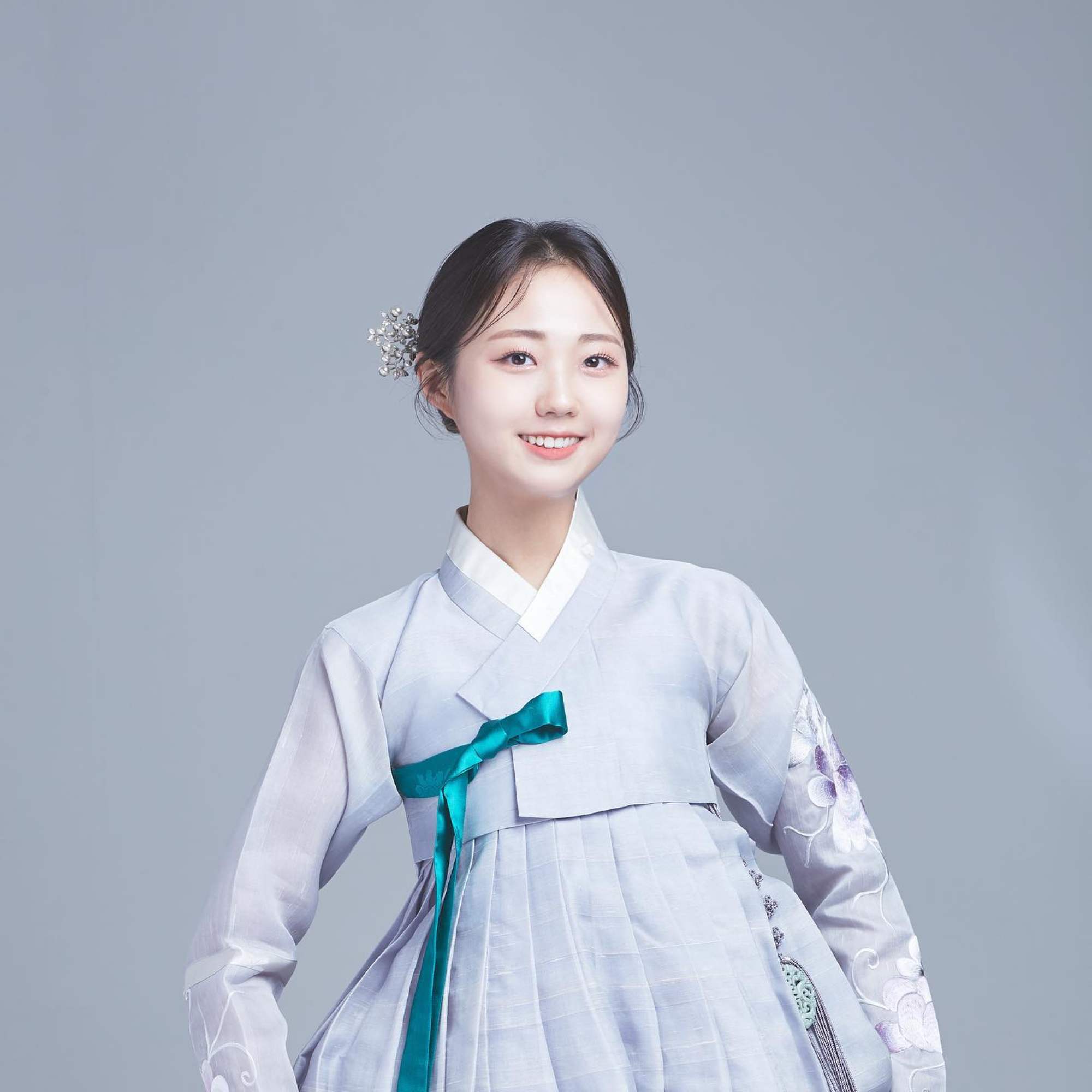
Korean TikTok star covers BTS’ Idol, IVE’s I Am and more in an all new way – with the plucked zither, a traditional stringed instrument
- Known online as Yageum Yageum, plucked zither player Oh Hyun-ji fuses traditional and contemporary with her popular covers of K-pop, pop and soundtrack songs
- She played at London’s Wembley Arena in 2023 for a concert celebrating the 140th anniversary of diplomatic relations between Korea and the United Kingdom
By Kwon Mee-yoo
In the dynamic world of music, where the traditional and contemporary often run in parallel, Oh Hyun-ji finds a way to harmonise both.
Popularly known online as Yageum Yageum, this talented young player of the gayageum – a traditional Korean plucked zither – has become an internet sensation, with almost 700,000 followers on TikTok and 313,000 on YouTube, collectively amassing over 100 million views.
Oh redefines the boundaries of this traditional instrument by blending it with various genres, including K-pop, pop, and even soundtracks from games and animations.

Her repertoire includes a wide range of covers, from her first gayageum rendition of BTS’s 2018 hit “Idol”, which she debuted on TikTok, to the group’s subsequent chart-topper “Dynamite”.
She also captured significant attention with her version of IVE’s “I am”, her most-viewed cover on YouTube, as well as a unique interpretation of “Arabian Nights” from the Aladdin movie soundtrack and trot singer Lim Young-woong’s “Love Always Run Away”.
In a notable video, Oh covers Japanese duo Yoasobi’s “Idol” from the anime Oshi no Ko, showcasing an innovative “37-string ensemble”.
Blackpink and BTS’ Suga show the power of using traditional Korean sounds
This unique approach combines the traditional 12-string gayageum, which is typically tuned in a pentatonic scale, with the modern 25-string variant, commonly used for its compatibility with the heptatonic scale of Western music.
“For [Yoasobi’s] ‘Idol’, I initially used a 25-string gayageum, then switched to a 12-string when the song’s tonality shifted. ‘Idol’ is a track with numerous modulations, which isn’t common,” Oh says.
“I wondered how to adapt this complexity to the gayageum and decided to use two instruments together, effectively creating a 37-string ensemble. However, a real 37-string gayageum doesn’t actually exist.”
This is an example of how she finds joy in experimenting with different musical styles and brings a refreshing perspective to the instrument.
Each video attracts a different age group and nationality of viewers, but TikTok draws the most international crowd
She elaborates on her spontaneous approach.
“I do listen to K-pop and pop songs, but I also find inspiration from YouTube shorts and reels to see what’s trending,” she says.
But she sometimes experiences challenges in selecting songs for her gayageum covers as she looks for songs that not only resonate well with the instrument but are also easier to play. Songs with numerous semitones and accidental marks are particularly difficult.

When she gets hooked by a song, she tends to record immediately, she says.
“I usually start playing the melody on the gayageum first, after which I focus on constructing the chords to flesh out the music further.”
The process, though varying from song to song, usually involves around an hour or two of music recording, an hour of filming and another for editing.
While Oh primarily uses a 25-string gayageum for covering popular music, most hobbyists play the 12-string version.
“When they request, I try to upload videos of me playing the 12-string gayageum. I include the names of the scales in these videos to make it easier for them to follow along and play those songs on their own instruments,” she says.

Her cover videos, shared across multiple platforms, have captivated viewers around the world.
“Each video attracts a different age group and nationality of viewers, but TikTok draws the most international crowd,” Oh says.
One of the most intriguing responses has come from viewers in the Arabic world.
“I thought my play sounds very much Korean, so I was surprised to hear that Arabs found the sound of their music in my performances and liked it. It was really interesting,” Oh says.
Oh’s talent took her to the stage at London’s Wembley Arena in November 2023 for a concert celebrating the 140th anniversary of diplomatic relations between Korea and the United Kingdom.
“I was so honoured and I thought my heart was going to jump out of my chest,” she says, recounting the overwhelming experience of playing K-pop covers to an international audience.
“I prepared a five-minute medley of K-pop songs, selected in consultation with the coordinator to present songs that are popular in the UK.”
Having started her video venture during the coronavirus pandemic, it was her first opportunity to present her K-pop covers to a live audience.
“Seeing the faces of the foreign audience, hearing them sing along in Korean, was an exhilarating and incredibly moving experience for me,” she says.
Oh is well aware of the challenges facing gugak, or traditional Korean music.
“At a gugak concert, the audience often consists mainly of other gugak musicians, rather than the general public … I believe that playing or performing is meaningful only when there is an audience to listen,” she says.
“It seems the younger the people are, the less interest they show in this traditional art form.”
K-pop and K-drama stars born in Year of the Dragon, from Yeji to Im Si-wan
However, she remains determined to make gugak more accessible, believing that her fusion covers can bridge the gap between the traditional and the modern.
Recently, Oh moved from South Korea’s northeast Gangwon province to its capital Seoul in search of more opportunities.
She is hopeful about performing more frequently in Korea.
“I’m thinking about busking, especially at the Han River parks,” she says.
“Imagine the charm of playing the gayageum outdoors – it would be quite romantic, wouldn’t it?”

